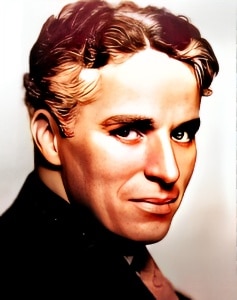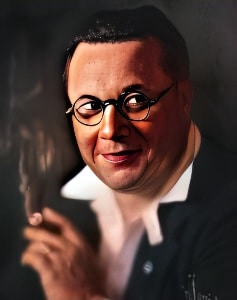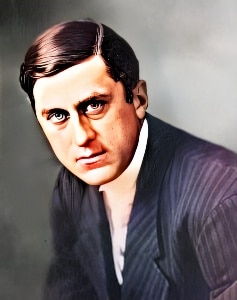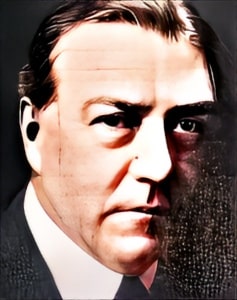 Charlie Chaplin, one of the most iconic and influential figures in the history of cinema, was born on April 16, 1889, in London, England.
Charlie Chaplin, one of the most iconic and influential figures in the history of cinema, was born on April 16, 1889, in London, England.
He became a legendary actor, director, and filmmaker known for his distinctive character, the Tramp, and his pioneering contributions to silent and sound cinema.
Charlie Chaplin’s early life was marked by poverty and hardship. Raised in a London slum, he endured a tumultuous childhood that included the absence of his father, the mental illness of his mother, and time spent in workhouses and on the streets. These experiences deeply influenced his later work and his empathy for the underprivileged.
Chaplin’s entrance into show business came through a touring theatrical company, where he honed his skills as a performer. In 1913, he was recruited by film producer Mack Sennett to join the Keystone Studios in Hollywood. It was at Keystone that Chaplin created his iconic character, the Tramp, with his distinctive bowler hat, cane, and mustache.
Chaplin’s silent film career skyrocketed, and he soon became one of the most recognizable figures in the world. He signed with the Essanay and Mutual film studios, where he created some of his most enduring and influential works. Films like “The Kid” (1921), “The Gold Rush” (1925), and “City Lights” (1931) established him as a master of comedy, blending humor with pathos and social commentary.
Chaplin’s Tramp character was a lovable vagabond, navigating a world filled with adversity and absurdity. His ability to connect with audiences on a deeply emotional level, despite his silent persona, made him a beloved and enduring figure.
In 1919, Chaplin co-founded United Artists along with Mary Pickford, Douglas Fairbanks, and D.W. Griffith. This move gave him unprecedented creative control over his films, allowing him to experiment with storytelling and expand his cinematic horizons.
However, Chaplin’s career and personal life were not without controversy. His outspoken political beliefs, including his criticism of fascism and his advocacy for workers’ rights, attracted both admiration and scrutiny. In the 1940s, he faced allegations of being a communist sympathizer during the era of McCarthyism in the United States.
The transition to sound cinema presented a challenge to many silent film stars, but Chaplin embraced it with remarkable success. In 1931, he released “City Lights,” a silent film in the midst of the sound era, which was a critical and commercial success. He continued to make sound films, including “Modern Times” (1936) and “The Great Dictator” (1940), which used dialogue for the first time.
“The Great Dictator,” in which Chaplin played a dual role as a Jewish barber and a satirical version of Adolf Hitler, remains one of his most iconic and powerful works. The film combined humor with a profound anti-fascist and anti-totalitarian message.
Chaplin’s personal life was marked by numerous marriages and relationships, as well as controversies and legal battles, including paternity suits and a deportation case. He spent much of his later years in Europe, particularly Switzerland, after facing criticism and legal issues in the United States.
In 1972, Chaplin received an Honorary Award from the Academy of Motion Picture Arts and Sciences for his “incalculable effect in making motion pictures the art form of this century.” This recognition marked the culmination of his legendary career.
Charlie Chaplin passed away on December 25, 1977, in Vevey, Switzerland. His films and legacy continue to captivate audiences and inspire filmmakers and actors worldwide. Chaplin’s ability to blend comedy with social commentary, his memorable characterizations, and his contributions to both silent and sound cinema have firmly established him as a true pioneer and a lasting icon in the history of film.
Loading live eBay listings...




